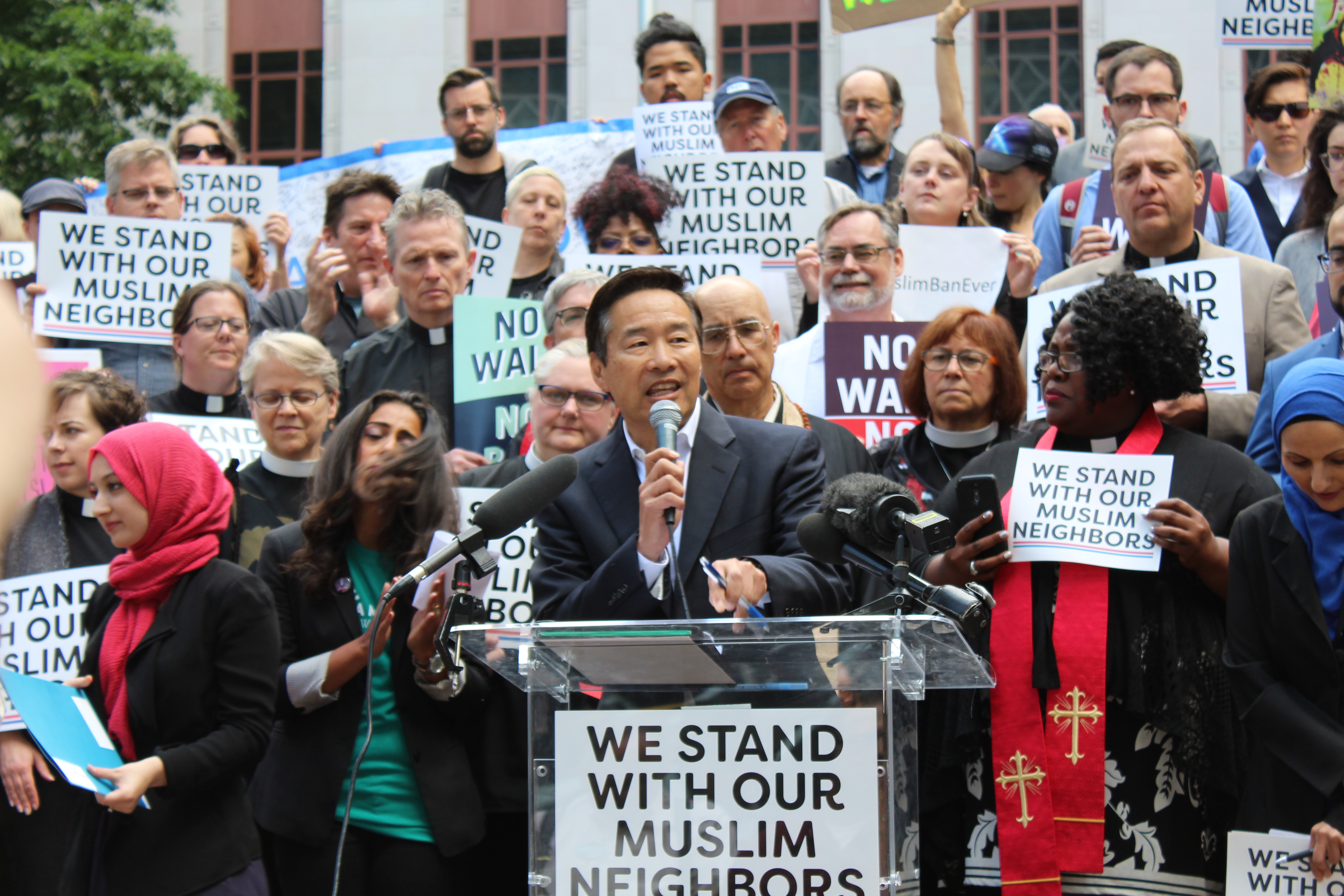June 26, 2018
With the hindsight of history, Chief Justice Roberts acknowledges that the forced removal of 110,000 Japanese Americans to concentration camps was solely and explicitly based on race and that this is clearly unlawful. Roberts uses this accurate historical perspective as a reason to overturn Korematsu, but his words are directly contradicted by the Trump administration’s actions and the Court’s decision to defend them.
During WWII, the government used the weakly constructed façade of “military necessity” to claim that their actions against Japanese Americans were not motivated by race, ethnicity or national origin—despite all evidence to the contrary. It took over 40 years for the government to admit that there was no military necessity and that Japanese American incarceration was actually motivated by “war hysteria, racial prejudice, and a failure of political leadership.”
Today, the government is once again deploying the specter of “national security” to justify the travel ban and hide their well-documented animus towards Muslims.
And we’re not falling for it.
The Supreme Court finally, after nearly 75 years, repudiating Korematsu should have been a moment to celebrate—but we take no joy in an empty token of recognition that comes at the expense of our Muslim brothers and sisters. Real victory is rejecting Korematsu in actions, not words. We will continue to speak out and hold this administration accountable to their actions as they justify their bigotry behind the false premise of national security.
—
By Densho Director Tom Ikeda
[Header photo: Tom Ikeda speaks at a CAIR Washington press rally on the steps of the Nakamura Courthouse in downtown Seattle, June 26, 2018]
